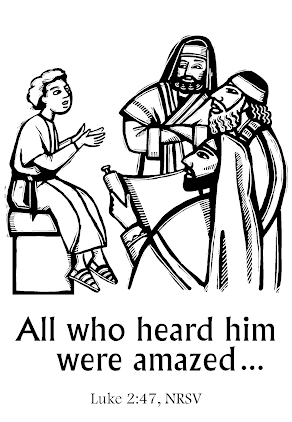First Sunday After Christmas- Jesus grew in wisdom

1 Samuel 2: 18-20, 26; Psalm 148; Colossians 3: 12-17; Luke 2: 41-52 Our Gospel reading today is the only account we have in the Bible of Jesus as a child. We obviously have accounts of him as a baby, but this is the only place we see him as a kid. Mary and Joseph lose 12 year old Jesus. This seems a bit strange for us. Mostly that is because we imagine family in a certain way. We imagine the nuclear family. A mom, a dad, and kids. We usually keep a pretty close eye on our kids. … But in the 1st century things were different. Jesus would have been travelling as a part of a huge caravan. People would have come from all over to go to Jerusalem for Passover. So, imagine large streams of people walking along the roads back home from Jerusalem. They probably would have been travelling with a large family group, along with friends. They would be walking with aunts and uncles and cousins and grandparents, and plenty of others from the village. So, this would be a big crowd o...







